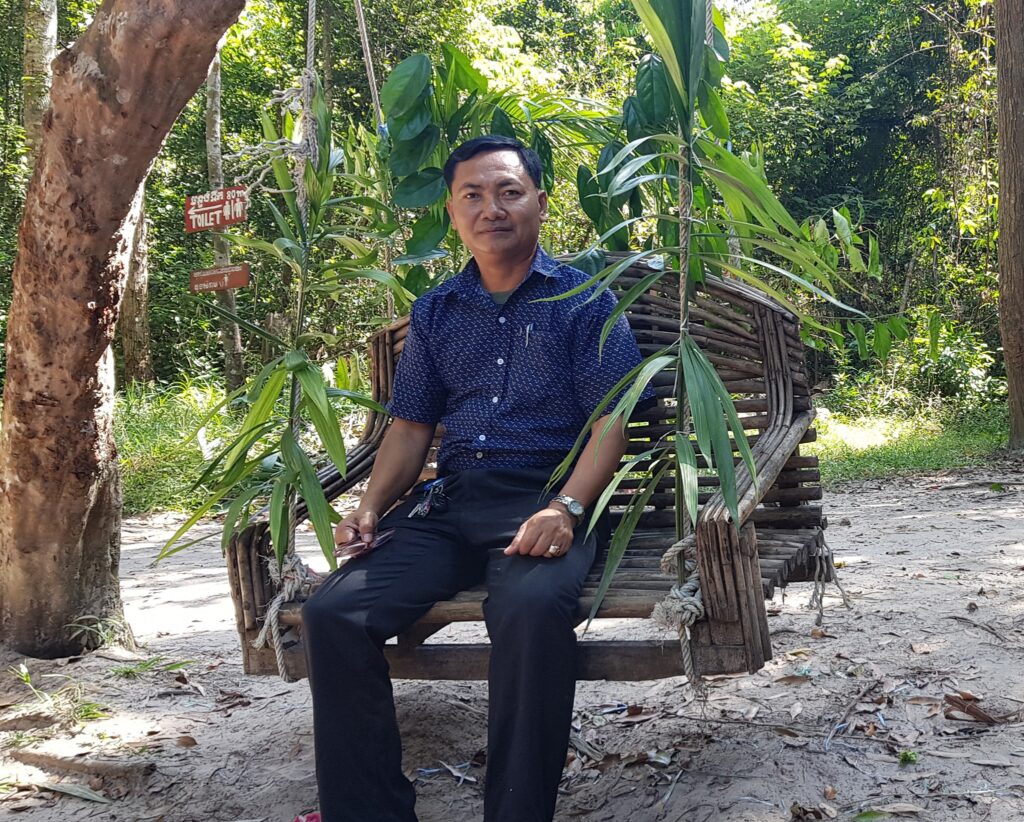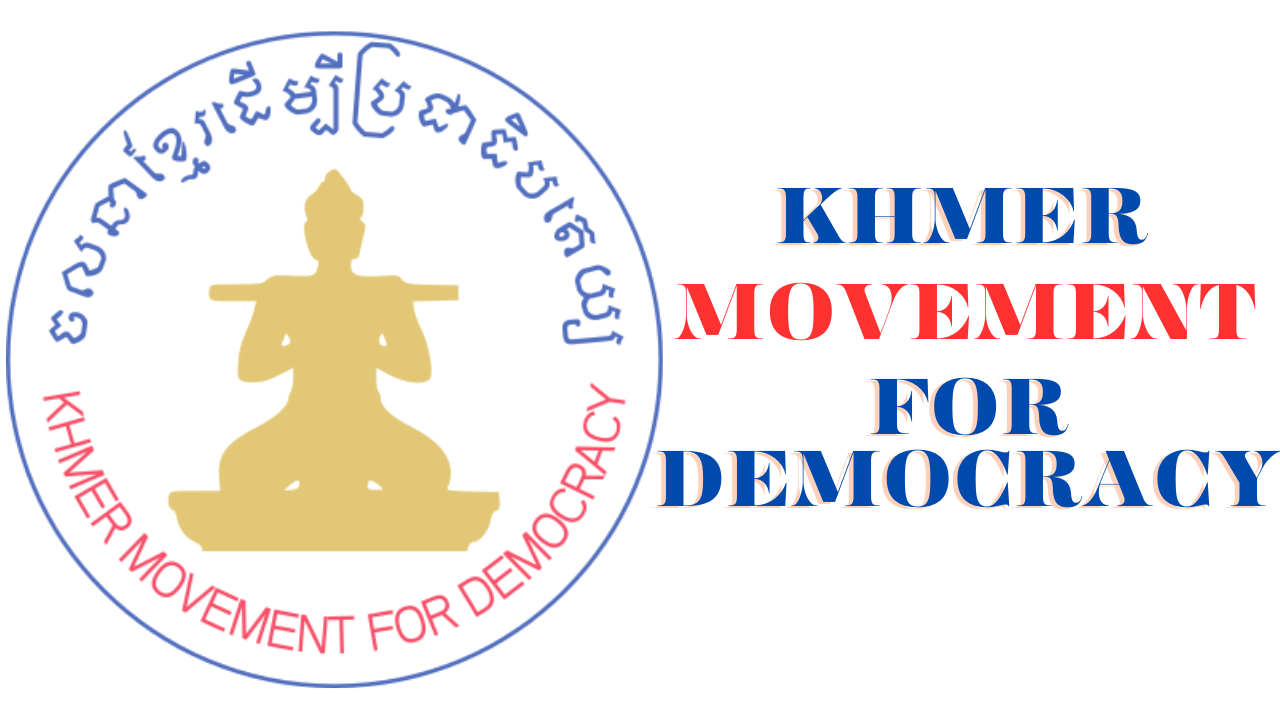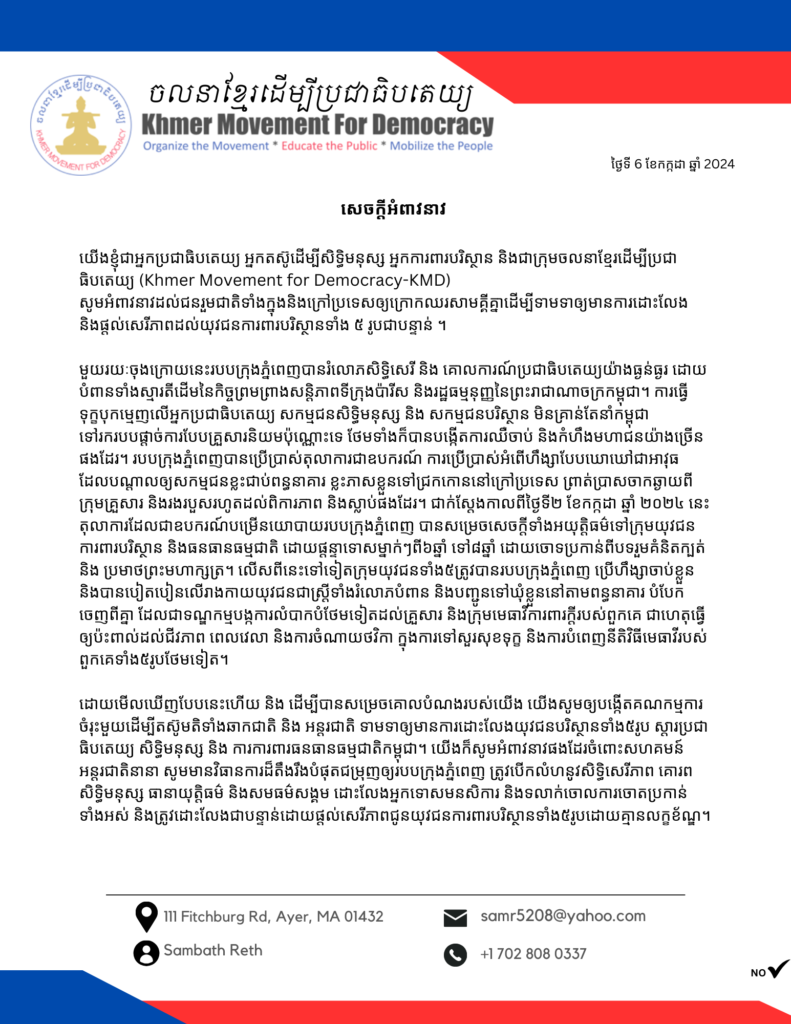Foreign partners have attempted for decades to support the develop of stronger capacity in Cambodia’s legal system.
Such attempts are doomed to failure while the country’s courts remain under the control of the executive.
That reality has been demonstrated yet again by a sentence of seven years imprisonment handed to a newly elected district councillor. The Hun family regime continues to use the courts as weapons to stamp out any trace of dissent.

Uth Choeun is a democratically elected member of the Mong Russei District Council in Battambang Province, representing the Khmer Will Party. He was sentenced by the Battambang provincial court for “plotting” in connection with the attempt by leading opposition figure Sam Rainsy to return to Cambodia from forced exile in 2019.
The case shows yet again that Cambodian citizens have no hope of justice from their judicial system. The World Justice Project (WRP) Rule of Law Index for 2023 ranked Cambodia’s judicial system 141st out of 142 countries surveyed globally, and 15th out of 15 countries in the east Asia and Pacific region, scoring even lower than Myanmar. In terms of civil justice, Cambodia is the worst country in the world among those surveyed, the WRP found.
Such findings have been echoed year after year. Freedom House gives Cambodia zero points for judicial independence and finds that the torture of suspects and prisoners is frequent. These facts will not change while sections of the international community allow legitimacy to the Hun family regime while wilfully ignoring the intimidation of Cambodians via the courts, extra-judicial violence and transnational repression.
In such a context, legal capacity building exercises in Cambodia simply increase the government’s repressive reach.
A more coherent and realistic approach would be for foreign governments to impose a co-ordinated programme of personal sanctions against those responsible for human rights violations in Cambodia. Any support for legal capacity building should be made conditional on an independently verified separation of the judiciary from the executive.
Uth Choeun had already been arrested in October 2019 before being released the following month. He has said that he will ask his lawyer to appeal against the sentence. The Battambang provincial court has now issued a warrant for his arrest.
Sam Rainsy, the co-founder of the banned Cambodia National Rescue Party (CNRP), has been in forced exile in Paris since 2016. His attempt to return to Cambodia in 2019 failed when then Prime Minister Hun Sen said that any airline carrying him would not be allowed to land in the country. Hun Sen also secured a ban on Sam Rainsy entering Thailand, which would have created the possibility of an entry into Cambodia by land.
Kem Sokha, who became CNRP leader in place of Sam Rainsy in 2017, remains detained at his home, serving 27 years on a baseless charge of treason for which no clear evidence was ever offered. The CNRP was dissolved by Cambodia’s politically controlled supreme court in 2017, and national elections in 2018 and 2023 took place in the absence of any recognized opposition.
The Hun regime has been desperate to stamp out any trace of opposition at local as well as national level. The 2017 dissolution of the CNRP meant the loss of 5,009 democratically elected local councillors whose seats were simply taken over by the ruling Cambodian People’s Party. New arrests and violent extra-judicial beatings have continued under Hun Manet, who nominally took over from his father as prime minister in August 2023. The handover of power is illusory, as Hun Sen continues to the rule the country as president of the senate and leader of the CPP.

